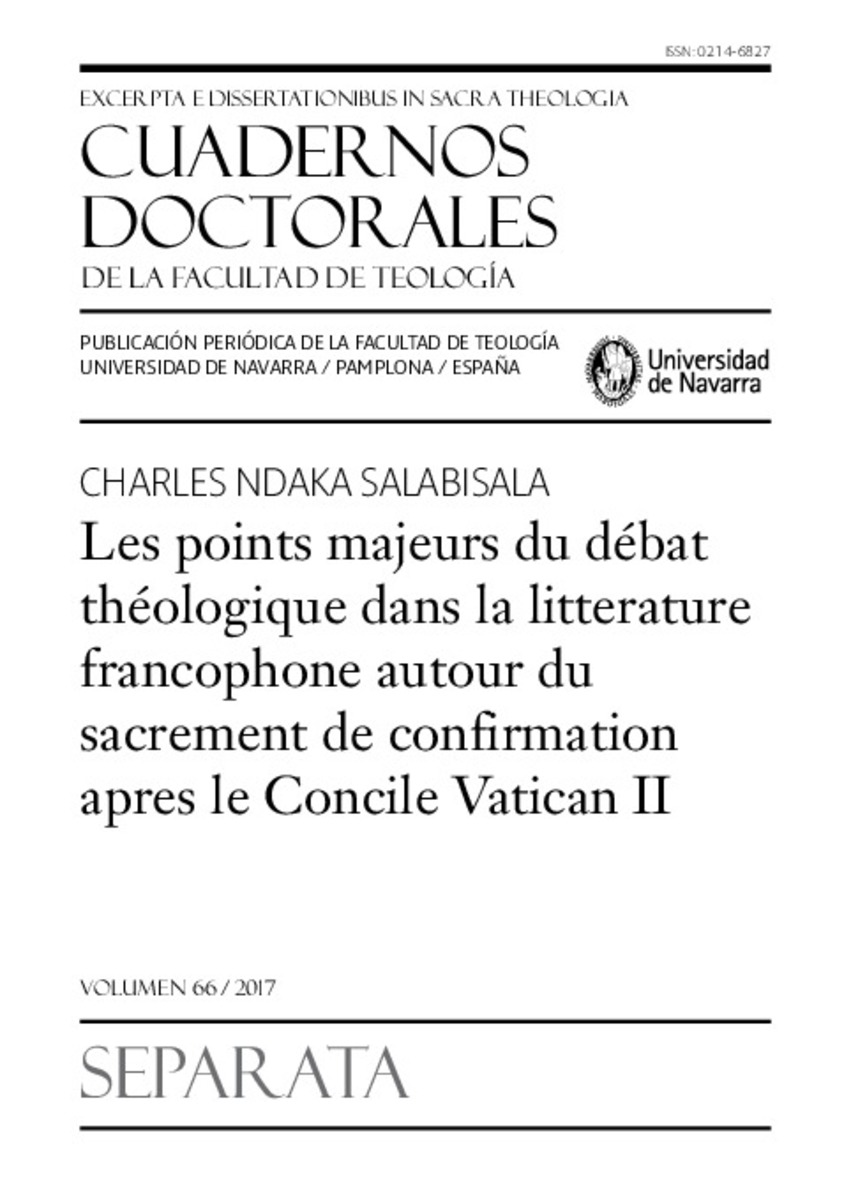Les points majeurs du débat théologique dans la litterature francophone autour du sacrement de confirmation apres le Concile Vatican II
Keywords:
confirmación
gracia
sacramentos de iniciación cristiana
confirmation
grace
sacraments of christian initiation
Publisher:
Servicio de Publicaciones de la Universidad de Navarra
Citation:
Salabisala, C. N. (Charles Ndaka). "Les points majeurs du débat théologique dans la litterature francophone autour du sacrement de confirmation apres le Concile Vatican II". Cuadernos Doctorales de la Facultad de Teología. Excerpta e Dissertiationibus in Sacra Theologia. 66, 2017, 217 - 279
Statistics and impact
0 citas en

0 citas en

Items in Dadun are protected by copyright, with all rights reserved, unless otherwise indicated.







